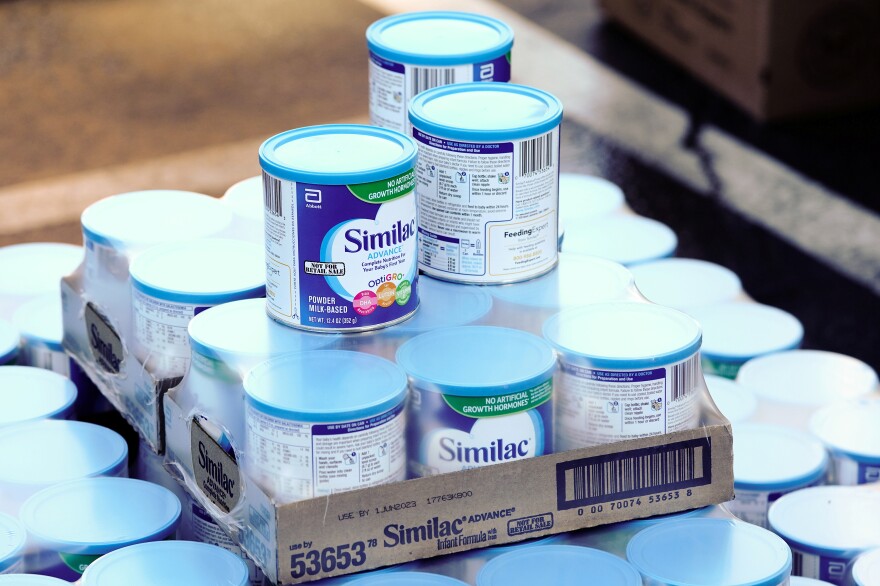The U.S. Food and Drug Administration is advising consumers not to use some powdered baby formulas after identifying four bacterial infections linked to the products. One of the cases was fatal.
Abbott Nutrition, which makes the Similac, Alimentum and EleCare brands, on Thursday issued a voluntary recall of certain formulas manufactured at its plant in Sturgis, Mich., where the formulas involved in the infections were produced.
You can check if your powdered formula is affected by inspecting the code printed near the expiration date. Affected products have a code beginning with first two digits of 22 through 37 and containing K8, SH or Z2 and have an expiration date of April 1, 2022, or later.
Liquid baby formula and all other products produced by Abbott Nutrition are not affected.
Abbott Nutrition said it is cooperating with the FDA investigation into the three Cronobacter sakazakii infections and one salmonella infection, all of which required hospitalization. The one fatal case has not been confirmed to be solely related to a Cronobacter infection, according to the FDA.
The FDA said environmental samples from the facility have yielded positive results for the Cronobacter bacteria, but there have been no reports of salmonella so far. A review of Abbott's records show that the company has destroyed products in the past due to the presence of Cronobacter.
Cronobacter infections are rare but can be especially dangerous for newborn babies.
Symptoms of a Cronobacter infection include poor feeding, jaundice and grunting breaths, according to the FDA. Those infected with salmonella might experience fever, diarrhea and abdominal cramps.
"We value the trust parents place in us for high quality and safe nutrition," Abbott said in a statement provided to NPR. "We'll do whatever it takes to keep that trust and resolve this situation."
Copyright 2022 NPR. To see more, visit https://www.npr.org.



